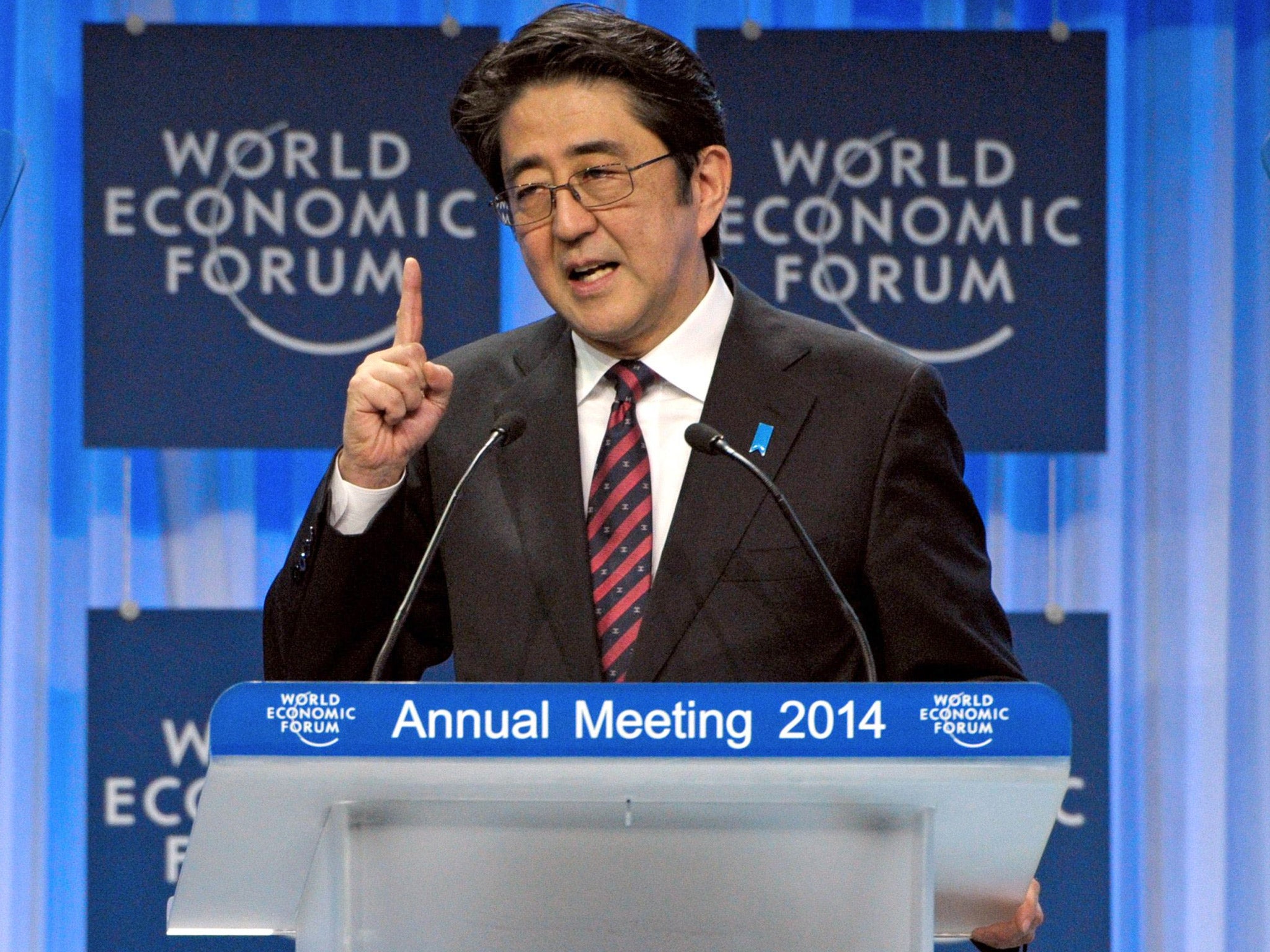Japanese premier Shinzo Abe compares tension between Tokyo and Beijing to that in Europe before First World War

Japan’s prime minister Shinzo Abe sent a shiver through the global diplomatic community today, by explicitly comparing tensions between Tokyo and Beijing to animosity between European powers in the run-up to the First World War.
Speaking on a visit to the World Economic Forum in Davos, Switzerland, Mr Abe said it was a “similar situation”, highlighting that China and Japan today, like Britain and Germany in 1914, have extensive trading links. He noted that in the case of Europe these trade links did not prevent an outbreak of hostilities.
Mr Abe also took the opportunity to cite rising Chinese military expenditure as a source of instability in the Pacific. He added that Japan was keen to strengthen its military ties with Washington.
Tensions have been running high over the past year between the two Asian economic giants over the disputed sovereignty of the uninhabited Senkaku/Diaoyu Islands in the East China Sea. Last November China established an air defence zone over the islands, which overlaps with Tokyo’s own, raising fears of a possible standoff.
However, Mr Abe also yesterday re-iterated Tokyo’s long-standing pledge “never again to fight a war” and said that an inadvertent conflict between the two countries – which have no high level diplomatic hotline – would be disastrous. “Japan has sworn an oath, never again to wage a war” he told delegates. “We continue to wish the world will remain in peace.”
Mr Abe was also in the Swiss mountain resort, where top business leaders and politicians are gathered for five days, in order to emphasise that the Japanese economy is finally turning a corner. In a rousing speech, delivered in English, Mr Abe pledged to boost Japan’s productivity growth by increasing the number of women in “leadership positions” to 30 per cent by 2020 and also by increasing immigration.
“It is not twilight but a new dawn that is breaking over Japan,” he said. Mr Abe also promised that he would personally drive structural reform. “I am willing to act like a drill bit to pierce through the solid rock of vested interests” he said.
The current ratio of female managers in Japan is 12 per cent, well below the level seen in other advanced nations. To achieve this goal Mr Abe has called for local governments to establish more childcare centres, to help women return to the workforce. He has also urged business leaders to extend permitted maternity leave to three years, from the present maximum of 18 months.
Subscribe to Independent Premium to bookmark this article
Want to bookmark your favourite articles and stories to read or reference later? Start your Independent Premium subscription today.

Join our commenting forum
Join thought-provoking conversations, follow other Independent readers and see their replies